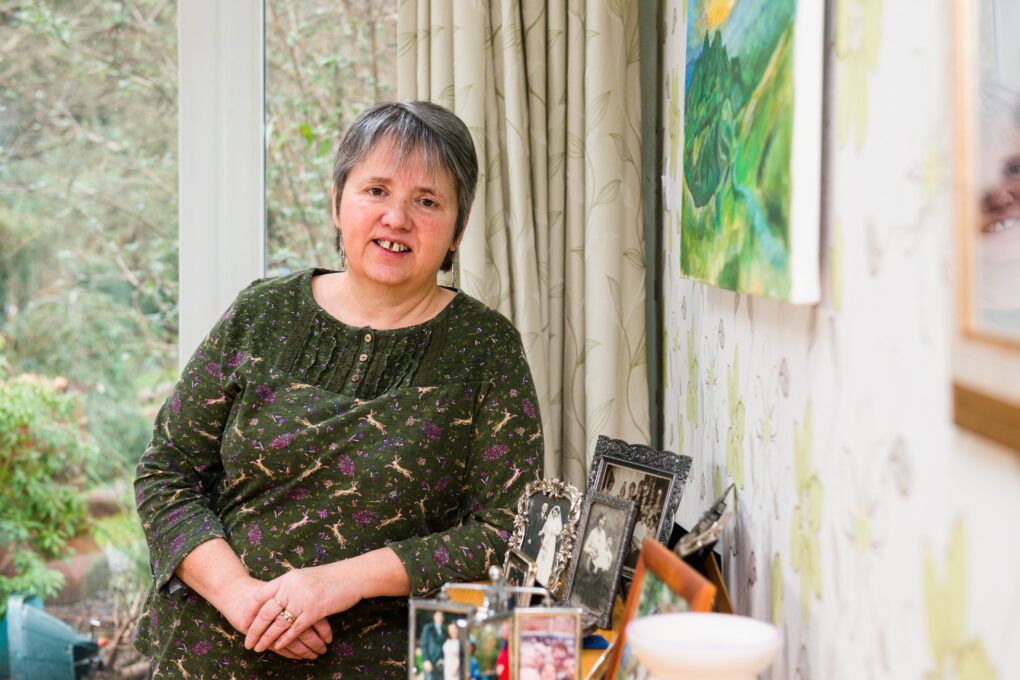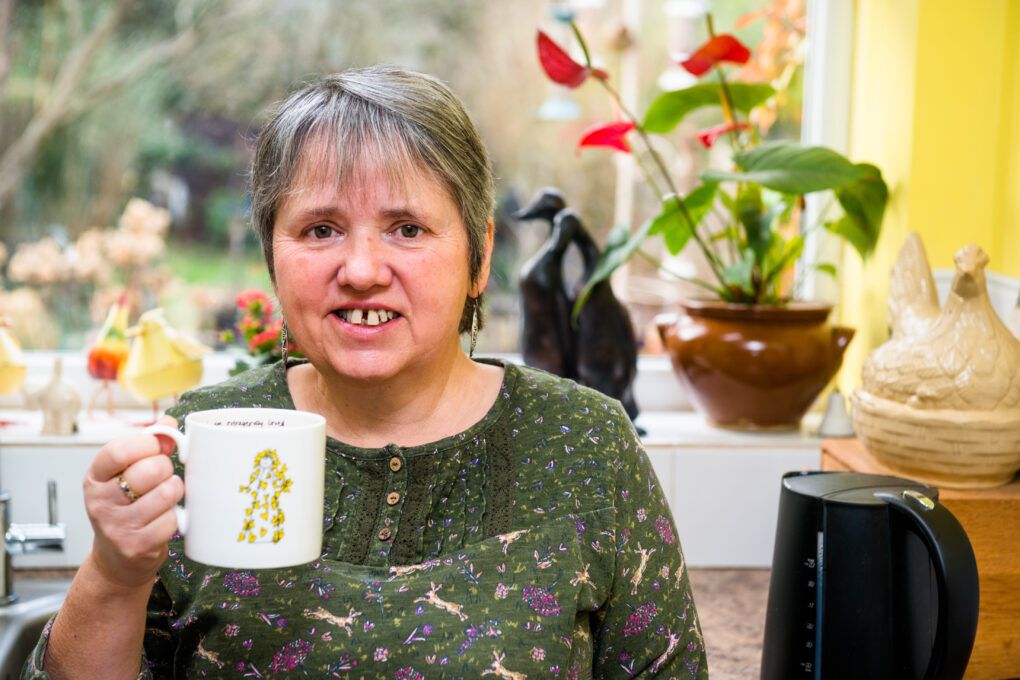‘I don’t have lots of money to give to charity – so I joined Our Future Health as a way of helping others’

As an eight-year-old, Linda Harris went from playing with dolls to having to care for her mum who was in the early stages of multiple sclerosis (MS).
“To begin with, she just had a limp,” says Linda. “As a child, it was my job when she went upstairs to get on my hands and knees and lift one of her legs up each step at a time.”
At the time, Linda had no idea that this was the beginning of a life as a young carer, joining forces with her older sister to look after their mum as her health deteriorated, while their father worked all the hours he could as an engineer in Solihull, Birmingham.
“We had to cook all the meals,” Linda says. “But to us, it was normal. We didn’t know anything else. Looking back, you realise we didn’t have a normal childhood.”
Despite it seeming like nothing out of the ordinary at the time, Linda admits that her mum’s illness impacted the entire family’s mental health. Her father “was stressed, smoked 20 a day and spent a lot of time in the shed”. She says her sister has blanked out large parts of her teenage years. “We were the sort of family that didn’t share feelings. It wasn’t like today – mental health wasn’t talked about. We just got on with it.”
A lack of research
It didn’t help that little was known about MS in the late ’70s. “It was a case of, ‘Well, that’s what she’s got. Tough,’” says Linda.
MS affects the brain and spinal cord, and can lead to a wide range of symptoms that can include severe fatigue, difficulties walking, problems with learning and muscle spasms. “Doctors didn’t try any drugs for the spasms, even when Mum’s leg muscles contracted so much that her heels were touching her buttocks.”
They didn’t get financial assistance either, as her dad was earning just enough to put them over the threshold for benefits. “We could just about cover the bills, but it meant we couldn’t get a stairlift. Every night, my dad put my mum over his shoulder and carried her upstairs in a fireman’s lift. That’s how he got her up to bed.”
Linda and her sister cared for their mum as her MS worsened and eventually they managed to get her into a disabled unit at Birmingham’s Moseley Hall Hospital near where they lived in Solihull. She was later also diagnosed with breast cancer, and died from complications related to her MS aged just 56.
A new diagnosis
Aged 19, Linda began training as a nurse “as a result of caring for Mum”. She went on to work in palliative care and elderly care. “The cut and thrust of a general hospital wasn’t for me,” she says. “I’m more of the gentle sort. I like talking to people and taking my time with them.”
While training for her nursing qualification, Linda suffered a seizure and was diagnosed with epilepsy. “I was burning the candle at both ends and was completely stressed out.” She later learned that three factors in particular triggered her seizures: stress, tiredness and alcohol, all of which had increased during training.
Linda learned to control her epilepsy with tablets, before weaning herself off them. However, the seizures returned when she was pregnant with her first child. “That meant I could add another trigger factor – hormones,” she says.
The epilepsy reappeared with vengeance during the menopause. “I used to have what they called ‘grand mal’ fits – the big ones where you shake all over,” she says. “But the most recent fits are short ones lasting 30 seconds. My head drops forward, blocking my airway, which is alarming for other people, and I vomit and wet myself.” Once they start, they recur every five minutes for up to 12 hours. Luckily, her medication helps control them.
Linda’s decision to join Our Future Health

After 41 years of working in the NHS, Linda retired from nursing in the summer of 2022 aged 60. As a result, Linda has not known a life without illness and disease close to her. It’s for this reason, along with her hopes of supporting research into her family’s diseases, that she signed up for Our Future Health earlier this year. She donated her blood sample at the Birmingham Bullring hub, after the invite dropped through her letterbox.
“It caught my eye as it wasn’t asking for donations, it was asking, ‘Can we test you?’” she says. “I thought, ‘I don’t have oodles of money to give to charity, but something like this is something positive I can do’. It doesn’t cost anything, apart from your bus fare to the clinic.
“I’ve been surrounded by illness practically all my life. By taking part in this research, you’re contributing to your grandchildren, great-grandchildren – the future generations. Hopefully we can iron out some of the health problems.”

Let’s prevent disease together
By volunteering for Our Future Health, you can help health researchers discover new ways to prevent, detect and treat common conditions such as diabetes, cancer, heart disease, stroke and Alzheimer’s.